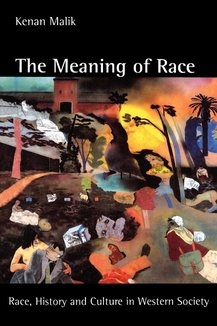Recommended Books

Nation Building: Why Some Countries Come Together While Others Fall Apart (Princeton Studies in Global and Comparative Sociology)
Author:
Andreas Wimmer
ISBN 13:
978-0691202945
A new and comprehensive look at the reasons behind successful or failed nation building Nation Building presents bold new answers to an age-old question. Why is national integration achieved in some diverse countries, while others are destabilized by political inequality between ethnic groups, contentious politics, or even separatism and ethnic war? Traversing centuries and continents from early nineteenth-century Europe and Asia to Africa from the turn of the twenty-first century to today, Andreas Wimmer delves into the slow-moving forces that encourage political alliances to stretch across ethnic divides and build national unity. Using datasets that cover the entire world and three pairs of case studies, Wimmer’s theory of nation building focuses on slow-moving, generational processes: the spread of civil society organizations, linguistic assimilation, and the states’ capacity to provide public goods. Wimmer contrasts Switzerland and Belgium to demonstrate how the early development of voluntary organizations enhanced nation building; he examines Botswana and Somalia to illustrate how providing public goods can bring diverse political constituencies together; and he shows that the differences between China and Russia indicate how a shared linguistic space may help build political alliances across ethnic boundaries. Wimmer then reveals, based on the statistical analysis of large-scale datasets, that these mechanisms are at work around the world and explain nation building better than competing arguments such as democratic governance or colonial legacies. He also shows that when political alliances crosscut ethnic divides and when most ethnic communities are represented at the highest levels of government, the general populace will identify with the nation and its symbols, further deepening national political integration. Offering a long-term historical perspective and global outlook, Nation Building sheds important new light on the challenges of political integration in diverse countries.

The Meaning of Race: Race, History, and Culture in Western Society
Author:
Kenan Malik
ISBN 13:
978-0814755532
Argues that the social meaning of race emerges from a contradiction between the ideology of equality and the reality of inequality Today, race seems to be both everywhere and nowhere. There still exists a general abhorrence about discriminating between people according to their race. And yet, people are continually categorized according to their race―Afro- Caribbean, white, Jewish―though we often have difficulty in defining just what race is. Everything from criminality to the entrepreneurial spirit is given a racial connotation―witness stereotypes of black muggers or Asian shopkeepers.The Meaning of Race argues that the social meaning of race in modern society emerges from the contradiction between an ideological commitment to equality and the persistence of inequality as a practical reality. Kenan Malik here follows the development of racial ideology over the past two hundred years, tracing the different forms it has taken, from biological theories of race to the relationship between race and culture. Specific attention is focused on the impact of the break up of the postwar order and the end of the Cold War and the concomitant repoliticization of the notion of racial difference. Malik goes on to critique the poststructuralist and postmodern theories of difference which have become the backbone of contemporary antiracist discourse, and to examine the possibility of transcending the discourse of race.

Multiculturalism: Examining the Politics of Recognition
Authors:
Charles Taylor
,
Kwame Anthony Appiah
,
Amy Gutmann
,
Jürgen Habermas
,
Stephen C. Rockefeller
,
Michael Walzer
,
Susan Wolf
ISBN 13:
978-0691037790
A new edition of the highly acclaimed book Multiculturalism and "The Politics of Recognition," this paperback brings together an even wider range of leading philosophers and social scientists to probe the political controversy surrounding multiculturalism. Charles Taylor's initial inquiry, which considers whether the institutions of liberal democratic government make room--or should make room--for recognizing the worth of distinctive cultural traditions, remains the centerpiece of this discussion. It is now joined by Jürgen Habermas's extensive essay on the issues of recognition and the democratic constitutional state and by K. Anthony Appiah's commentary on the tensions between personal and collective identities, such as those shaped by religion, gender, ethnicity, race, and sexuality, and on the dangerous tendency of multicultural politics to gloss over such tensions. These contributions are joined by those of other well-known thinkers, who further relate the demand for recognition to issues of multicultural education, feminism, and cultural separatism. Praise for the previous edition:
Find on:
 Amazon
Amazon